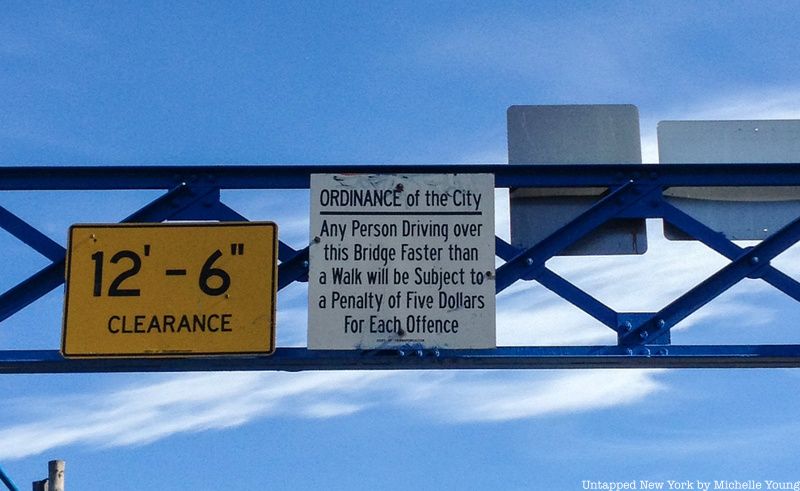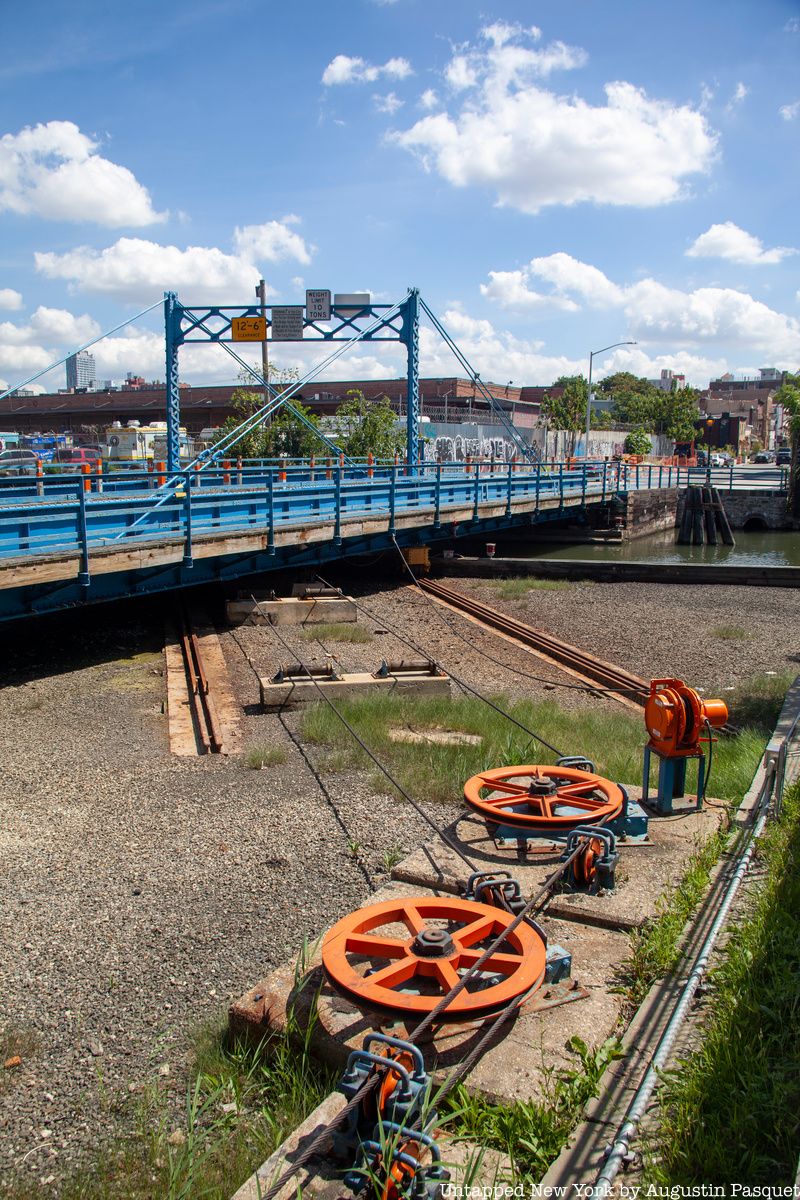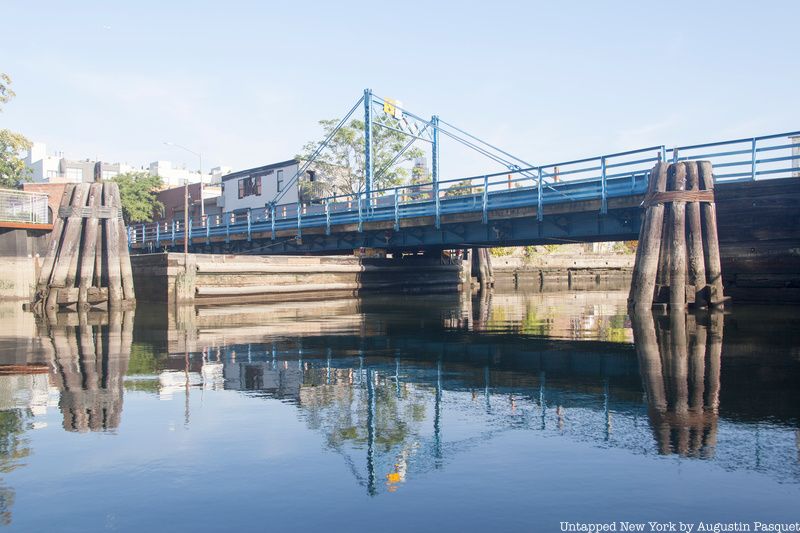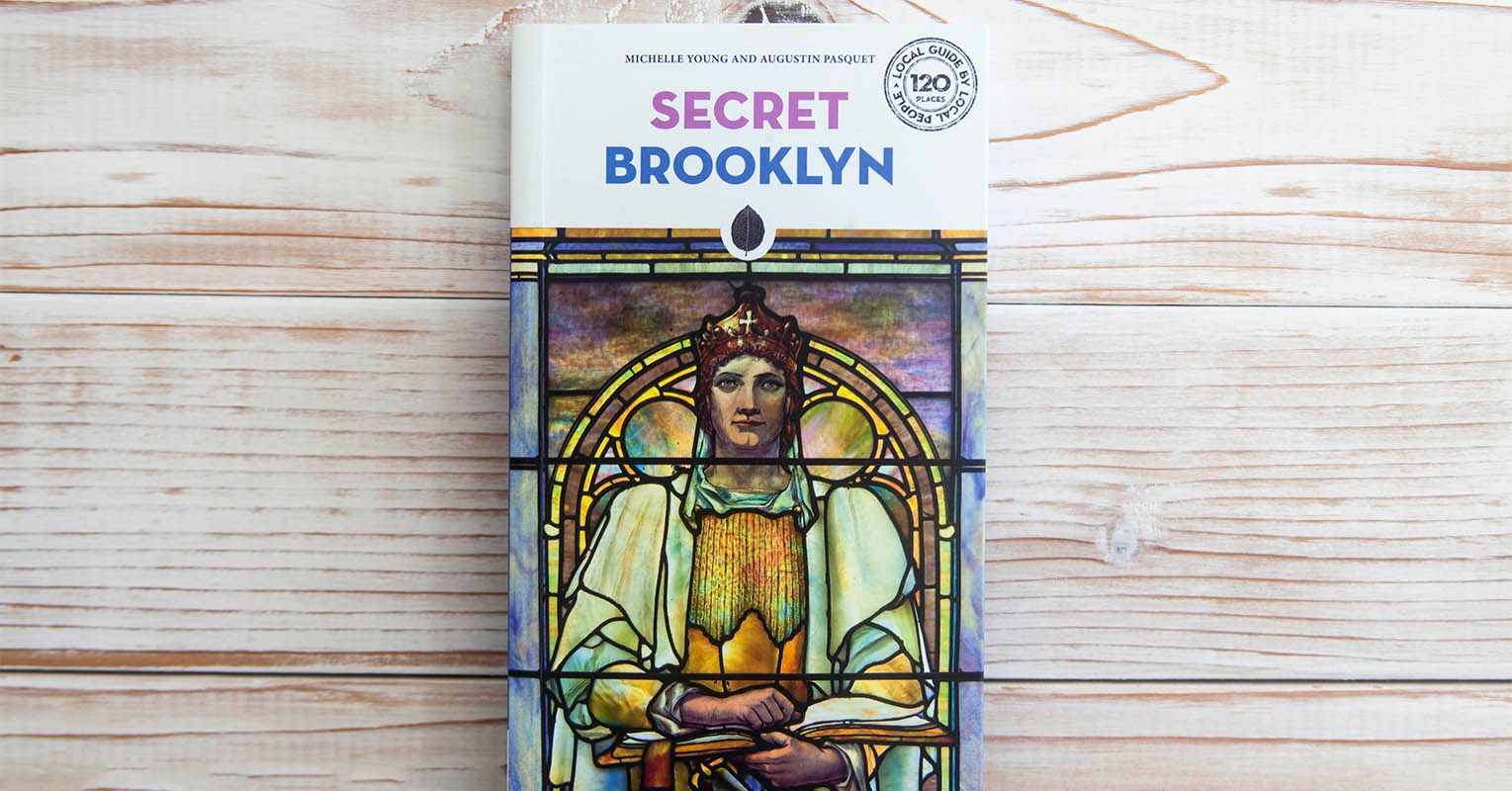

“Any Person Driving over this Bridge Faster than a Walk will be Subject to a Penalty of Five Dollars for Each Offence,” reads the central sign on the Carroll Street Bridge in Gowanus, Brooklyn. It’s a sign connected to an antiquated law that dates back to the early 1800s. The Carroll Street Bridge itself dates to 1889. The wood plank deck bridge is one of the last wooden bridges left in New York City that allows cars over it, and it is the oldest of the three retractable bridges left in the United States. With such credentials, it was designated a New York City landmark in 1987. Belgian blocks line the roads that lead up to the bridge, and amidst the raw, industrial state of the Gowanus Canal, you can easily imagine the bridge in use during the 19th and early 20th centuries.

Retractable, or retractile bridges, open to allow water vessels to pass through, and the Carroll Street Bridge uses a mechanism that takes the whole span of the bridge and rolls it diagonally on wheels along steel rails using pulleys and wire cables. It was originally powered by steam, but was converted to electric in 1907-08. It may be inferred through historic documents that the use of a retractable bridge at this span was possibly due to the fact that an earlier design for the bridge would have required acquiring a piece of private property that the Common Council was having trouble purchasing at the time. The Landmarks Preservation Commission noted that retractable bridges are “employed to provide channel clearance in locations where other bridge types are impractical.”

The Carroll Street Bridge is an example of a trapezoidal-shaped retractable bridge. It spans 107 feet long with a steel overhead stay frame in a latticework pattern that supports steel cables. The bridge also has two pedestrian walkways, also of wood, and the steel is painted in a bright blue.
Many notable names were involved in the construction of the Carroll Street Bridge. Robert van Buren, a descendant of U.S. President Martin van Buren and Chief Engineer of the Bureau of Construction, oversaw the project. A notable civil engineer, Charles O.H. Fritzche, developed the mechanical system. A subsidiary of the Cooper, Hewitt & Company, New Jersey Steel and Iron, manufactured the steel.

In the 1980s, the bridge was in such poor shape, it had to be closed to traffic but a rehabilitation took place just in time for its 100th anniversary. Today, the bridge is operated by the New York City Department of Transportation (NYC DOT). When someone needs a bridge to open in order to pass, they must contact the DOT and allow for two hours advanced notice.
The Carroll Street Bridge is one of five bridges on the Gowanus Canal that are movable. In addition to walking across the bridge, one of the best way to experience it is by kayaking with the Gowanus Dredgers (our tours with them will return this year, stay tuned!) From below, you can see the infrastructure of the historic bridge up close and personal.
The Carroll Street Bridge is one of 150+ entries in our book Secret Brooklyn. You can get an autographed copy from us!



